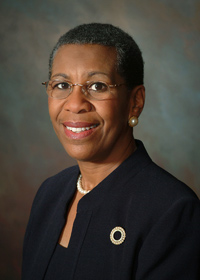 Kalamazoo College has joined more than 150 other U.S. colleges and universities in the Institute of International Education’s Generation Study Abroad initiative that aims to double the number of U.S. college students who study abroad by 2020. Generation Study Abroad reflects the U.S. Department of Education’s international strategy that aims to provide all U.S. students with a “world-class education” and seeks “global competencies for all students.”
Kalamazoo College has joined more than 150 other U.S. colleges and universities in the Institute of International Education’s Generation Study Abroad initiative that aims to double the number of U.S. college students who study abroad by 2020. Generation Study Abroad reflects the U.S. Department of Education’s international strategy that aims to provide all U.S. students with a “world-class education” and seeks “global competencies for all students.”
In IIE’s latest Open Doors publication that documents both the outbound study abroad and the inbound international student activity for U.S. colleges and universities, Kalamazoo College was ranked 15th among baccalaureate institutions for its 2011-2012 outbound study abroad participation of 80.8 percent. Additionally, the number of international students coming to K now approaches ten percent.
In the current academic year, 2013-2014, Kalamazoo College students have studied or will study abroad on programs ranging from ten to 30 weeks. The College offers its students 44 study abroad programs in 28 countries on six continents, pre-approved for transfer of credit. Approximately 20 K students will also engage in international internships or research during summer 2014. Numerous students also take advantage of the College’s U.S.-based “study away” opportunities throughout the year.
Students participating in Kalamazoo College sponsored study abroad programs of 18-30 weeks duration, typically engage in a cultural project in addition to taking classes at the partner institution. These cultural projects allow K students to work alongside local people, use the local language, and achieve locally set goals. These cultural projects help students achieve the learning outcomes the College expects from a K study abroad experience. These outcomes include:
- understand, through study and experience, the cultures of several parts of the world
- be sensitive to and respectful of personal and cultural differences
- engage with global issues and cultural diversity
- be proficient in at least one second language and display cultural competence in a variety of contexts
- act effectively and responsibly as a citizen, both locally and globally, and thereby enhance intercultural understanding.
Kalamazoo College students have embarked on study abroad experiences since 1958, making the College a pioneer in sending students abroad for immersive cultural, language, and study experiences. More information about the study abroad program at K is available at the Center for International Programs website: www.kzoo.edu/cip.





